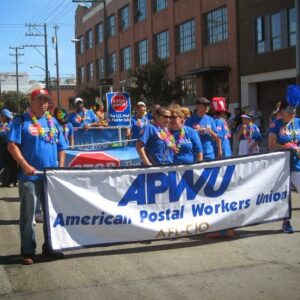February 28, 2005
APWU-Salmon & Sons Contract Expires End of February
The collective bargaining agreement between the American Postal Workers Union and Pat Salmon & Sons is due to expire Feb. 28. The agreement affects more than 500 private-sector mail-haul drivers represented by the APWU.
The parties have had several bargaining sessions, most recently on Feb. 24 and 25 in Dallas. Still to be negotiated are three major issues: health insurance, personal days, and the grievance-arbitration process.
The current agreement provides health insurance coverage for drivers and their families. The company has expressed absolutely no interest in continuing the health insurance coverage, despite the fact the company contributes little to the cost of premiums.
In addition to continuing health insurance, the drivers’ negotiating committee has proposed paid personal days. In contrast to other APWU bargaining units, drivers do not receive any paid personal days or sick days. The company has rejected the union’s proposals. Moreover, the company has unilaterally eliminated a traditional benefit known as “Safety Day,” under which, drivers were able to earn personal days by maintaining excellent driving records.
The company has proposed eliminating the grievance procedure for any type of discipline that results from accidents. This is a direct attack on the concept of “just cause” and threatens the job security of the drivers.
The union has engaged in informational picketing to educate union members and the public about the key issues. Our drivers have the right to strike to achieve these honorable goals. The APWU National Executive Board has given approval to the APWU locals to take strike votes. In the event of a strike, all members participating in the strike would receive strike benefits.
“Our members won’t be intimidated by the company,” said APWU Support Services Division National Business Agent Bill Manley, adding, “Most of the drivers walked the picket lines in 2003 and know what it takes to have a successful strike.”
The drivers won their first contract in September 2003, following three years of negotiations, the filing of unfair labor practice charges, and a short but successful strike.



